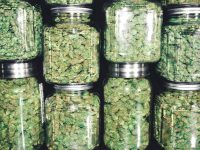Last week, a national newspaper column urged people that not drinking enough water, or being dehydrated at any level, can affect performance of everyday tasks. The scientific study says it affects everyone, whether you have an active job, or you’re sitting at your desk for most of the day.
A few weeks before that, another study went so far to say driving while dehydrated could be as bad as driving drunk.
Is dehydration that serious? If it is, why haven’t we heard more about it?
These repeated fears are nonsense, according to Dr. Stanley Goldfarb, a University of Pennsylvania kidney specialist, and a frequent voice of reason on hydration fixation.
“Do you need to spend the extra money, do you need to carry around bottles of water all day to make sure that you are never thirsty, to keep staying hydrated beyond any sense that you have any desire to drink? There is absolutely no evidence that is beneficial to you.
“We are designed to drink enough water to keep ourselves from being thirsty and that does the job just fine.”
Funnily enough, the two aforementioned studies were funded by water bottle companies, as is the majority of dehydration ‘research’.
“Industries tend to sponsor studies with the hope that it’s going to produce an outcome that is going to lead them to be able to make claims for benefits,” Dr. Goldfarb said.
So what are a few other hydration myths we’ve accepted as fact? Here are five of Goldfarb’s favourite myths, debunked:
Myth #1: If you wait for thirst, it’s too late
“Do you have to eat before you are hungry, or something terrible is going to happen?” Goldfarb said. “Everybody knows you become hungry and then you eat and then you are fine. It’s the same way with drinking. You become thirsty, and then you drink, and then you are fine.”
Myth #2: The more water you drink, the more toxins you’re flushing out
The water provided from regular thirst is all that’s required for your kidneys to flush out excess toxins. More water is simply more volume; the removal of waste is unaffected.
“You don’t increase the clearance of toxins from the body you simply excrete those toxins in a larger volume, which simply means more episodes of urination.”
Myth #3: Urine colour is an indicator of hydration level
“It is true that as the urine becomes more concentrated it will become slightly darker, because you do put out substances in the urine that do have a yellowish colour, as everyone is familiar with,” Goldfarb said. “You can be healthy with urine that’s a little bit dark.”
Myth #4: Thirsty or not, drinking a lot of water is always healthy for you
“For a healthy individual, there really is no evidence that drinking extra amounts of water on some regular basis will produce any health benefits. This has been studied many times,” Goldfarb explained.
“It will not reduce your risk of cardiovascular disease. That has been studied over long periods of time. There is no evidence it will improve your kidney function. That has been studied.”
Myth #5: Mild hydration can impair thinking
“A little bit of dehydration to the point where you are a little bit thirsty has been carefully studied, and does not alter reaction time,” Goldfarb said.
So don’t drink water just because it seems right, or that it ‘can’t hurt.’ Thanks to Mother Nature, we’re given the perfect indicator to intake the necessary amount of water we need – thirst.
Believe in it, and quit sweating about hydration.
Photo credit: Alina Kruk/Shutterstock












